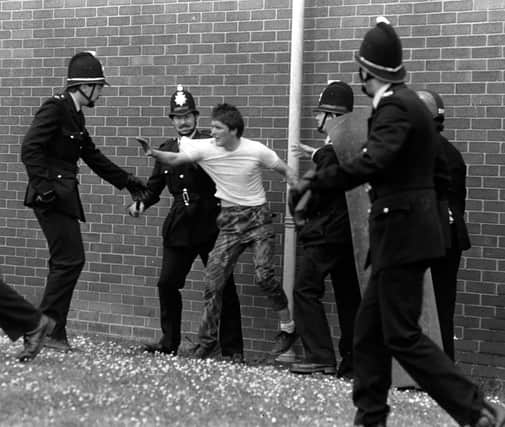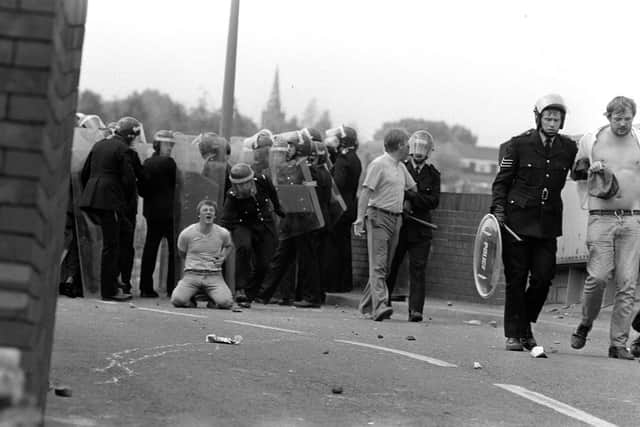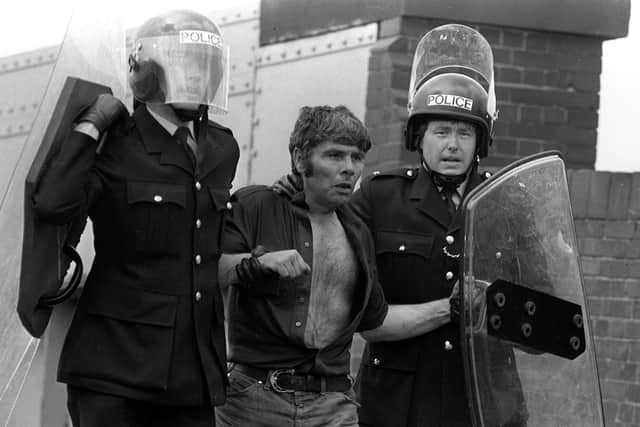Documentary promises truth about miners' strike


Particular scrutiny will be given to the planning behind the policing of picket lines at Orgreave in particular.
The Rotherham Advertiser has recently published special coverage of the 40-year anniversary of the strike.
Advertisement
Hide AdAdvertisement
Hide AdAnd several TV platforms have taken a fresh look at how then Prime Minister Margaret Thatcher and police from all over the UK effectively outmanoeuvred the National Union of Mineworkers strikers in 1984-1985.


Now London-based Embankment Films is set to release a new feature documentary that they hope to market across the world.
It won’t show Britain and this part of its history in the best light - but it vows to tell the truth and expose exactly how the cards were stacked against the pitmen from the highest levels.
Strike: An Uncivil War promises to include “previously hidden government documents and a treasure trove of never-before-seen archive”.
Advertisement
Hide AdAdvertisement
Hide AdIt’s directed by Daniel Gordon, who investigated the Hillsborough Disaster, the 1989 tragedy at Sheffield Wednesday’s stadium that claimed the lives of 97 people and attracted widespread and lasting criticism of South Yorkshire Police.


Gordon said his recent film was one he had been “wanting to make for over a decade now.
“My mum grew up in a mining village in South Yorkshire, and I grew up very aware of the strength of that community.
“I turned 12 during the strike and to see the destruction brought on by it was something I could only observe on television and through a child’s lens, but over the years I have always been determined to revisit this period and go beyond the lazy headlines and official narrative of the time.
Advertisement
Hide AdAdvertisement
Hide Ad“After making Hillsborough, I knew that Strike and in particular The Battle of Orgreave was next.
“There are so many similarities with Hillsborough and Orgreave – the cover-up, the shifting of blame by the government and other instruments of the state.
“What has shocked me though was discovering the level of planning. From the very top a government hell-bent on destroying its own people,” said Gordon.
“A very uncivil war if you like. And it is scandalous to discover how far they were prepared to go, in a ‘democratic’ country such as Britain, with results that continue to have an impact to this day.
Advertisement
Hide AdAdvertisement
Hide Ad“I hope this film can continue to raise awareness and, in some way, shine a light on the justice denied.”
Graham Begg, co-CEO of Rainmaker, the company selling the film overseas, said they were “thrilled to be bringing this fascinating and ground-breaking documentary to the 18international marketplace”.
Rainmaker described the strike itself as: “The most divisive and violent industrial dispute that Britain has ever witnessed.
“The strikes were not just about coal mines but touched on class, community, gender, relationships, and ideologies.
Advertisement
Hide AdAdvertisement
Hide Ad“It represented a clash between socialist and capitalist visions for Britain. The strike’s impact left the country more divided, with unresolved questions. Strike is set for release on June, coinciding with the 40th anniversary of the Battle of Orgreave.”